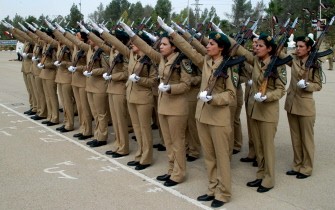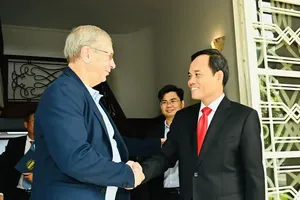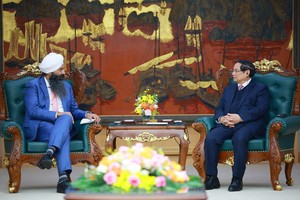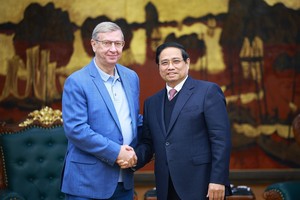Thousands of people rallied in the Syrian capital Wednesday in support of President Bashar al-Assad's regime, which has been shaken by mass protests for nearly seven months, as a court freed a top dissident.
An AFP journalist said the demonstration followed a call on the Facebook page "My homeland, Syria" by Assad supporters to "reinforce unity and solidarity with the families of martyrs and thank Russia and China for their stand against the conspiracy" in the UN Security Council.

The demonstration was also to denounce the Syrian National Council (SNC), an umbrella body formally set up on October 2 that pulls together most of the groups opposing Assad.
Placards in the central Sabaat Bahrat district proclaimed "The army and people with you, Bashar al-Assad" and "Syria is our country and Assad our president." A giant portrait of the president dominated the area.
The Syrian Observatory for Human Rights reported anti-regime protests in Idlib in the northwest, the port of Latakia, Homs in central Syria, Deir Ezzor in the east, Daraa in the south and near Damascus.
Russia and China, both permanent members of the UN Security Council, used their vetoes on October 4 to block a Western resolution threatening Assad's regime with "measures" if it did not end its bloody crackdown on dissent.
However, the two countries have since taken a tougher line, demanding that Assad implement the reforms that he has repeatedly promised to introduce.
The United Nations says the repression has caused more than 2,900 deaths since protests erupted in mid-March.
Syrian authorities accuse "armed terrorist gangs" of being behind the trouble.
Damascus has threatened retaliation against any country that recognises the SNC.
But Qatari emir Sheikh Hamad bin Khalifa Al-Thani on Wednesday hailed as an "important step" the creation of the opposition front, urging Assad to talk to them.
"It is in the interest of Syria that the government sits with and reaches an agreement with this council over the nature of a new constitution that would preserve the balance of the Syrian nation," the ruler of the energy-rich Gulf state said in remarks aired on Al-Jazeera television.
"I think that the council enjoys legitimacy among the protesters in Syria," he added.
On Monday, the European Union welcomed the council's formation and urged the world to do the same, as it readied new sanctions against Assad's regime.
Back in Damascus, prominent dissident Walid al-Bunni, who was arrested in August, was freed on bail on Wednesday, his lawyer Michel Shammas said.
"The Damascus court of appeals on Wednesday freed opposition figure Walid al-Bunni in exchange for a bail of 1,150 Syrian pounds ($23). He will be tried later for inciting (anti-regime) demonstrations and sectarianism," he said.
Bunni was detained on August 6 along with his two sons, who were released shortly afterwards.
In 2000, Bunni was one of the prime movers of the short-lived "Damascus Spring" amid hopes for reform that followed Assad's accession to the presidency after the death of his father, Hafez.
Bunni was one of 12 signatories of the 2005 Damascus Declaration, which called for democratic change in Syria, who were sentenced to 30 months in jail in October 2008 for "damaging the state." He was last released in June 2010.
In May, rights group Amnesty International said Bunni was one of several rights activists in Syria "forced into hiding after receiving threats from Syrian authorities."
Meanwhile, a Lebanese MP said police have information implicating Syria's embassy in Beirut in the disappearance of a Syrian opposition figure last seen in May.
Sami Gemayel said police chief Ashraf Rifi told a parliamentary committee on human rights he had "dangerous information" pointing to the embassy in the disappearance of Shebli al-Aysami, 86.
The co-founder of Syria's Baath party fled his native Syria in 1966 over political differences with the group.
Aysami's daughter Raja Sharafeddine, who attended the meeting, confirmed the news, saying: "According to Rifi's investigations, information clearly points to the Syrian embassy in my father's disappearance."
Meanwhile, in the United States, a Syrian-born US citizen was charged with spying for filming anti-regime protesters and providing material to intelligence agencies in a bid to silence the opposition, officials said.
A federal grand jury charged Mohamad Anas Haitham Soueid, 47, on October 5 in a six-count indictment for his efforts against activists in the US and Syria opposed to Assad's regime. He was arrested on Tuesday.
The Syrian embassy in Washington denied Soueid had acted as a spy for Assad's regime, dismissing the allegations as "ludicrous."
























